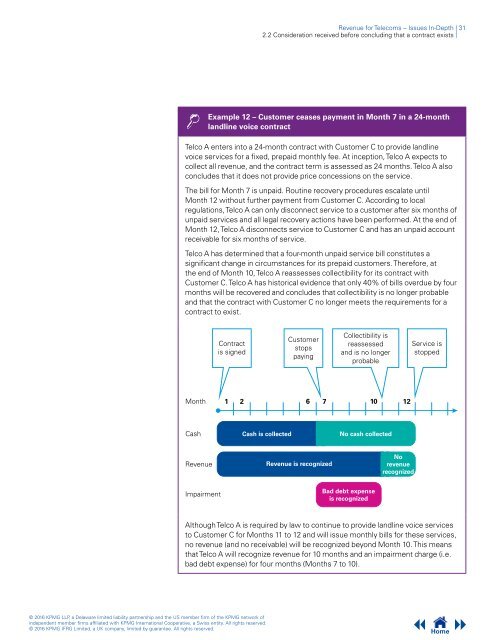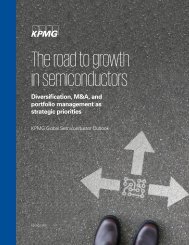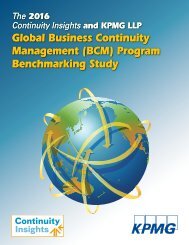Revenue for Telecoms
2cdncba
2cdncba
Create successful ePaper yourself
Turn your PDF publications into a flip-book with our unique Google optimized e-Paper software.
<strong>Revenue</strong> <strong>for</strong> <strong>Telecoms</strong> – Issues In-Depth | 31<br />
2.2 Consideration received be<strong>for</strong>e concluding that a contract exists |<br />
Example 12 – Customer ceases payment in Month 7 in a 24-month<br />
landline voice contract<br />
Telco A enters into a 24-month contract with Customer C to provide landline<br />
voice services <strong>for</strong> a fixed, prepaid monthly fee. At inception, Telco A expects to<br />
collect all revenue, and the contract term is assessed as 24 months. Telco A also<br />
concludes that it does not provide price concessions on the service.<br />
The bill <strong>for</strong> Month 7 is unpaid. Routine recovery procedures escalate until<br />
Month 12 without further payment from Customer C. According to local<br />
regulations, Telco A can only disconnect service to a customer after six months of<br />
unpaid services and all legal recovery actions have been per<strong>for</strong>med. At the end of<br />
Month 12, Telco A disconnects service to Customer C and has an unpaid account<br />
receivable <strong>for</strong> six months of service.<br />
Telco A has determined that a four-month unpaid service bill constitutes a<br />
significant change in circumstances <strong>for</strong> its prepaid customers. There<strong>for</strong>e, at<br />
the end of Month 10, Telco A reassesses collectibility <strong>for</strong> its contract with<br />
Customer C. Telco A has historical evidence that only 40% of bills overdue by four<br />
months will be recovered and concludes that collectibility is no longer probable<br />
and that the contract with Customer C no longer meets the requirements <strong>for</strong> a<br />
contract to exist.<br />
Contract<br />
is signed<br />
Customer<br />
stops<br />
paying<br />
Collectibility is<br />
reassessed<br />
and is no longer<br />
probable<br />
Service is<br />
stopped<br />
Month<br />
1 2 6 7 10 12<br />
Cash<br />
Cash is collected<br />
No cash collected<br />
<strong>Revenue</strong><br />
<strong>Revenue</strong> is recognized<br />
No<br />
revenue<br />
recognized<br />
Impairment<br />
Bad debt expense<br />
is recognized<br />
Although Telco A is required by law to continue to provide landline voice services<br />
to Customer C <strong>for</strong> Months 11 to 12 and will issue monthly bills <strong>for</strong> these services,<br />
no revenue (and no receivable) will be recognized beyond Month 10. This means<br />
that Telco A will recognize revenue <strong>for</strong> 10 months and an impairment charge (i.e.<br />
bad debt expense) <strong>for</strong> four months (Months 7 to 10).<br />
© 2016 KPMG LLP, a Delaware limited liability partnership and the US member firm of the KPMG network of<br />
independent member firms affiliated with KPMG International Cooperative, a Swiss entity. All rights reserved.<br />
© 2016 KPMG IFRG Limited, a UK company, limited by guarantee. All rights reserved.<br />
Home







